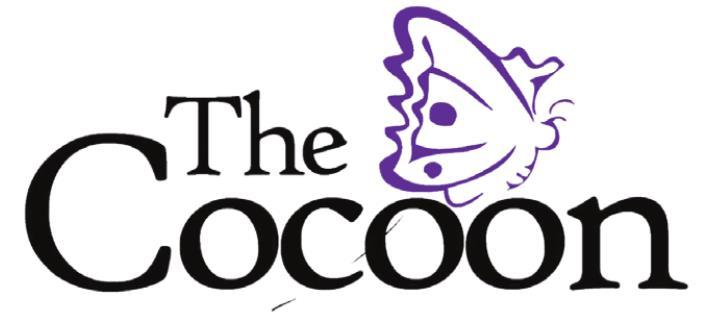WHILE COVID-19 is winding down to the point where restrictions on travel and masking in public have been eased, not so the pandemic’s effects on The Cocoon. In fact, it’s the opposite—the effects are rising. Still, there is reason for optimism.
The Cocoon is the Bowling-Greenbased nonprofit that aids survivors of domestic violence and sexual abuse. Its mission was adversely affected by the pandemic’s restrictions, which brought about increased isolation and financial strain—a “perfect storm” spawning a rise in domestic violence.
“When COVID was in its prime in March 2020 through last fall,” Cocoon Executive Director Kathy Mull said, “we definitely had seen an increase in the number of survivors [of domestic violence] reaching out to us for services.” She said there was a 40 percent increase in domestic violence calls to The Cocoon in March 2020 over the same month the previous year. “That eventually backed off some, but there still was an increased level of need.”
She said in 2021 The Cocoon served 818 survivors of domestic and sexual violence—a record number.
“The pandemic has been hard on everyone, harder for survivors to recover and find stability—and for us as service providers and advocates,” Mull said. “This has been an extremely difficult time for us and for the survivors.”
She added, “We were hopeful at the beginning of 2022 that we would see the need lessen, a dip in people calling and a dip in the level of violence intensity. We have not seen that. As of May 31, we serviced 445 people. We’re on track to serve more people than we did last year.”
Mull continued, “COVID is still with us, but there’s not the sense of urgency there had been. Folks aren’t at a high crisis level.” However, she added, “The recovery is taking so much longer for survivors. It’s taking longer to recover from trauma, and from financial strain. Survivors need services longer, and there’s more of a need for support than there has been in the last, say, five years.
“We’ve pivoted to holistic, wraparound long-term services, which takes longer. It’s a consequence of COVID.”
Yet, The Cocoon is adapting. “Because of the more-intensive, longer-term care, our advocates were working with a much larger group of survivors. We had to increase staffing. We brought on an additional advocate to have more time to support survivors in the longer and more intensive service portion.”
Mull addressed an important component to The Cocoon’s continued existence. “We’ve reached out to our community partners to have access to services. We’re working more with mental health partners to get our survivors connected. We’re increasing our ability to work collaboratively.
“We’ve seen the length of time survivors stay in our shelter increase by about 30 days,” she added. “We’ve been working with our community partners to find alternative housing.” Compounding the problem is that the Centers for Disease Control and Prevention continues to mandate social distancing in facilities like The Cocoon. Pre-pandemic, The Cocoon could accommodate 24 survivors; now, it’s about 14.
“I anticipate we’ll be in this increased level of service need. The housing issue continues to be a big barrier for us. I’m hopeful we’ll increase our bed space before the end of the year—that depends on what happens with COVID.”
Another before-and-after pandemic change is demographic. “Prior to COVID, the people we served were mostly in the 30 to 55 age range. That’s changed. More younger individuals are reaching out, and more survivors are coming to our shelter with their children. And more individuals 55 and older are reaching out for our services. Some are saying they’ve been in an abusive relationship for something like 30 years and are ready to make a change.”
She added, “Because of the increased level of abuse and violence reported, survivors are feeling more of a sense of urgency to make a change. Physical violence has escalated over the past two years.”
Mull said most of their survivors are women, “but we do serve men as well.”
Hope is on the horizon. “We feel very hopeful that we are able to develop opportunities for survivors to rebuild their lives. We’ve seen more people supporting us. There’s a stronger relationship with our community partners.
“People know who we are. We’ve created a level of community awareness that hasn’t been there before.”
Mull said proudly, “On June 14, we celebrated 17 years of serving survivors. We reiterate that help is available. If you are experiencing domestic abuse or are concerned about anyone who is, reach out to us. Check on your neighbors, friends, and family members. Start the conversation.”
The Cocoon can be contacted at 419-373-1730 (option two connects with the 24-hour line) or thecocoon.org.
Dennis Bova is a freelance writer and editor. ✲


